Teachers' salaries are ranked highest.
In the latest draft of the Law on Teachers submitted to the National Assembly for approval at the 9th session, the issue of salaries and allowances for teachers is mentioned, including many changes. Accordingly, teachers' salaries in public educational institutions are regulated as follows:
- Teachers' salaries are ranked highest in the administrative career salary scale system;
- Professional allowances and other allowances depending on the nature of the job and the region as prescribed by law;
- Preschool teachers; teachers working in ethnic minority areas, mountainous areas, border areas, islands and areas with especially difficult socio -economic conditions; teachers teaching in specialized schools; teachers implementing inclusive education; teachers in some specific fields and occupations enjoy higher salaries and allowances than teachers working in normal conditions.
Plan to abolish teacher classification
Also according to the latest draft Law on Teachers submitted to the National Assembly for approval at the 9th session, the current regulation of teacher titles according to grades (grades I, II, III with different salary coefficients for each grade) is expected to no longer exist. Instead, it will be determined according to the requirements of professional activities at each level of education and training.
If this is passed, it means that there will no longer be the practice of promoting teachers from low to high ranks as is currently the case (grade III to grade II, or grade II to grade I).
The classification of teachers has made many teachers believe that it is inappropriate and unfair when there are teachers with good abilities but still have low rankings, while those who work ineffectively can have high rankings...
According to many teachers, paying salaries according to job position and ability to meet the requirements of professional activities can help all teachers work more effectively and feel properly recognized.
Preschool teachers get increased allowances
According to the draft Decree regulating the preferential allowance regime for civil servants and employees in public educational institutions, preschool teachers will have their preferential allowance adjusted. Specifically, the allowance will be increased from 35% to 45% in favorable areas and up to 80% in areas with particularly difficult socio-economic conditions, to accurately reflect the complexity and pressure of the work.
According to the Ministry of Education and Training, the total income of preschool teachers is not commensurate with the specificity and complexity of their professional activities, when they have to take care of and educate children from 3 months to 6 years old, requiring high concentration to ensure safety and attract children's attention, often working 9-10 hours/day... However, their income is the lowest compared to other levels of education (starting salary coefficient 2.10; allowance 35%, total income about 6.63 million VND/month), leading to a high rate of job loss, with 1,600 preschool teachers quitting their jobs from August 2023 to April 2024, accounting for 22% of the total number of teachers quitting their jobs.
Teachers at preparatory schools also have their allowances increased from 50% to 70%, equal to that of teachers at ethnic boarding schools, ensuring fairness for similar tasks.
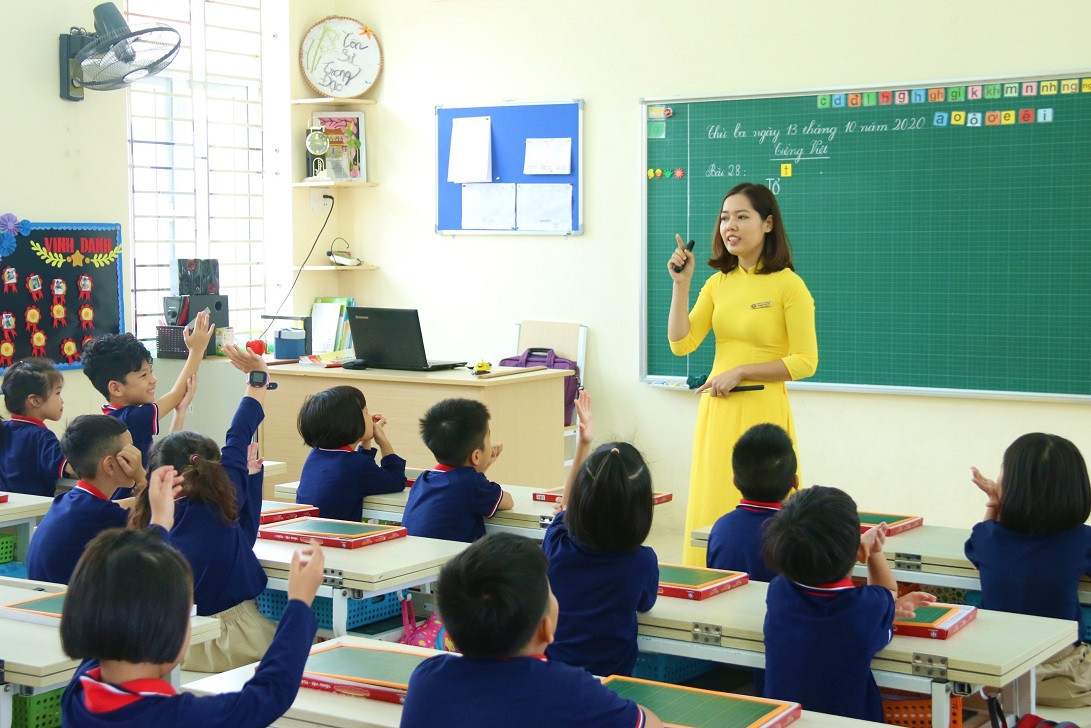
School staff get first allowance
Also according to the draft Decree regulating preferential allowances according to profession for civil servants and employees in public educational institutions, for the first time, school staff will receive allowances. It is expected that the rate will be 15% for support and service positions (library, clerical, etc.), 20% for common professional titles (accounting, medical, etc.) and 25% for specialized titles, to recognize their role.
According to the Ministry of Education and Training, currently, most staff positions apply the salary scale of type B or A0 civil servants according to Decree 204/2004/ND-CP, which are the two lowest salary scales among the salary scales of cadres, civil servants and public employees. In addition, the positions of laboratory equipment officers, educational affairs officers, and disabled education support officers have only one rank, so there is no opportunity to be promoted to a professional title and are applied a salary scale with a higher starting salary coefficient, the salary gap between ranks is longer; other staff positions actually have very few opportunities to be promoted. These shortcomings require a new regulation to ensure fairness and more effective support.
Towards more equity in teacher teaching hours
Circular 05 regulating the working regime for general education teachers, effective from April 22, stipulates that the assignment and arrangement of tasks for teachers must ensure the regulations on teaching hours, working hours, and rest hours according to the provisions of law; ensuring publicity and fairness among teachers in the same school. In cases where it is necessary to arrange part-time teachers, the principal shall prioritize the assignment of part-time teachers who do not teach enough average teaching hours per week and ensure that teachers meet the requirements to perform the assigned tasks.
The draft circular regulating the salary regime for overtime teaching for teachers in public educational institutions that the Ministry of Education and Training has just announced adds a regulation that the total number of overtime teaching hours in a school year for all teachers must not be higher than the maximum total number of overtime teaching hours in a school year of the educational institution.
Based on this regulation, school principals must assign tasks to teachers appropriately, ensuring fairness and minimizing the situation in an educational institution where there are teachers who teach overtime and teachers who teach short hours.
Flexible summer vacation time
One of the new points in the latest draft of the Law on Teachers submitted to the National Assembly compared to the previous draft is that the regulation on annual summer vacation time for teachers has been adjusted in an open direction, no longer "rigidly" setting a maximum of 8 weeks.
Specifically, Article 18 on teachers' working regime in the latest draft submitted to the National Assembly states: "The annual summer vacation and other holidays of teachers are arranged appropriately for teachers of each grade level, training level and type of educational institution according to Government regulations."
Also related to this issue, from 2025, principals and vice principals will officially have summer vacation according to new regulations because there were previously no clear regulations on this issue.
Specifically, Circular 05 regulating the working regime for general teachers issued by the Ministry of Education and Training, effective from April 22, clearly states that the annual leave time of principals and vice principals includes summer vacation, holidays, Tet and other holidays according to the provisions of the Labor Code and the Law on Social Insurance.
The summer vacation time of the principal and vice principal is flexibly arranged during the school year and during the teachers' summer vacation period, in order to maintain the normal operation of the school and promptly carry out tasks summoned by the superior management agency (if any).
Source: https://vietnamnet.vn/nhieu-tin-vui-lien-tiep-den-voi-giao-vien-luong-cua-nha-giao-duoc-xep-cao-nhat-2401987.html



![[Photo] Spreading Vietnamese culture to Russian children](https://vphoto.vietnam.vn/thumb/1200x675/vietnam/resource/IMAGE/2025/9/19/0c3a3a23fc544b9c9b67f4e243f1e165)
![[Photo] National Assembly Chairman Tran Thanh Man holds talks with Speaker of the Malaysian House of Representatives](https://vphoto.vietnam.vn/thumb/1200x675/vietnam/resource/IMAGE/2025/9/19/5cb954e3276c4c1587968acb4999262e)
![[Photo] Secret Garden will appear in Nhan Dan Newspaper's Good Morning Vietnam 2025 project](https://vphoto.vietnam.vn/thumb/1200x675/vietnam/resource/IMAGE/2025/9/19/cec307f0cfdd4836b1b36954efe35a79)

![[Photo] Sea turtle midwives](https://vphoto.vietnam.vn/thumb/1200x675/vietnam/resource/IMAGE/2025/9/19/9547200fdcea40bca323e59652c1d07e)


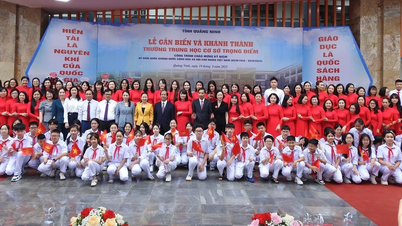


















































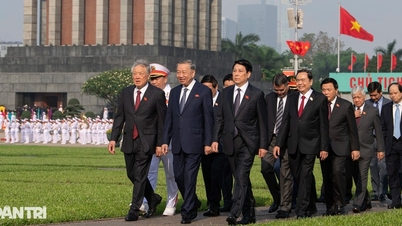





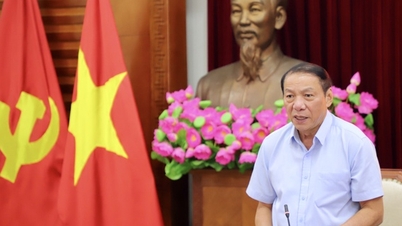
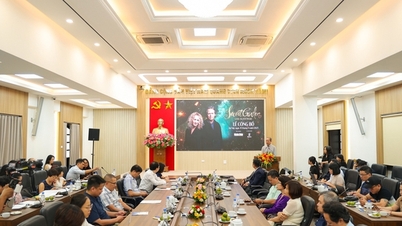









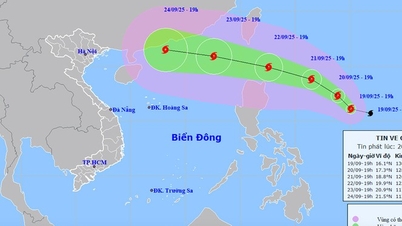

















Comment (0)